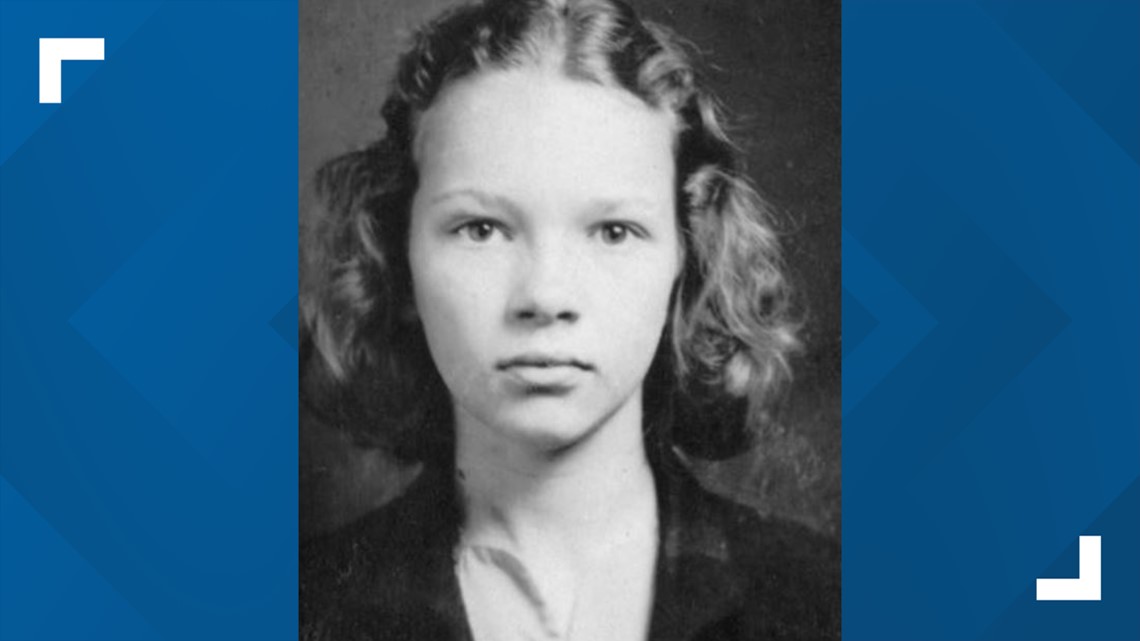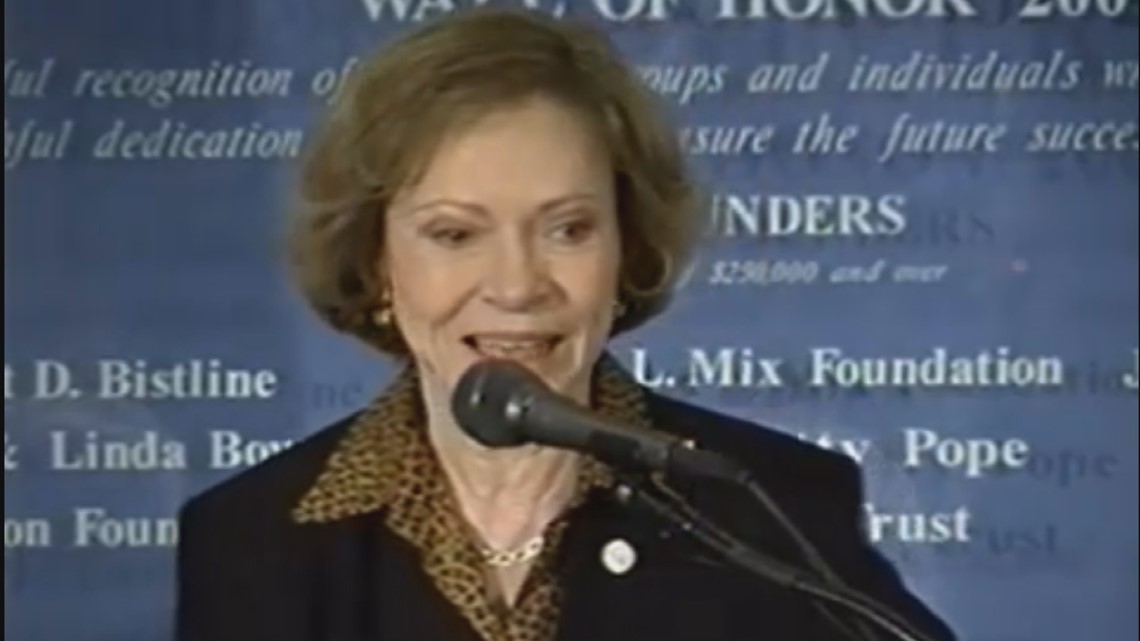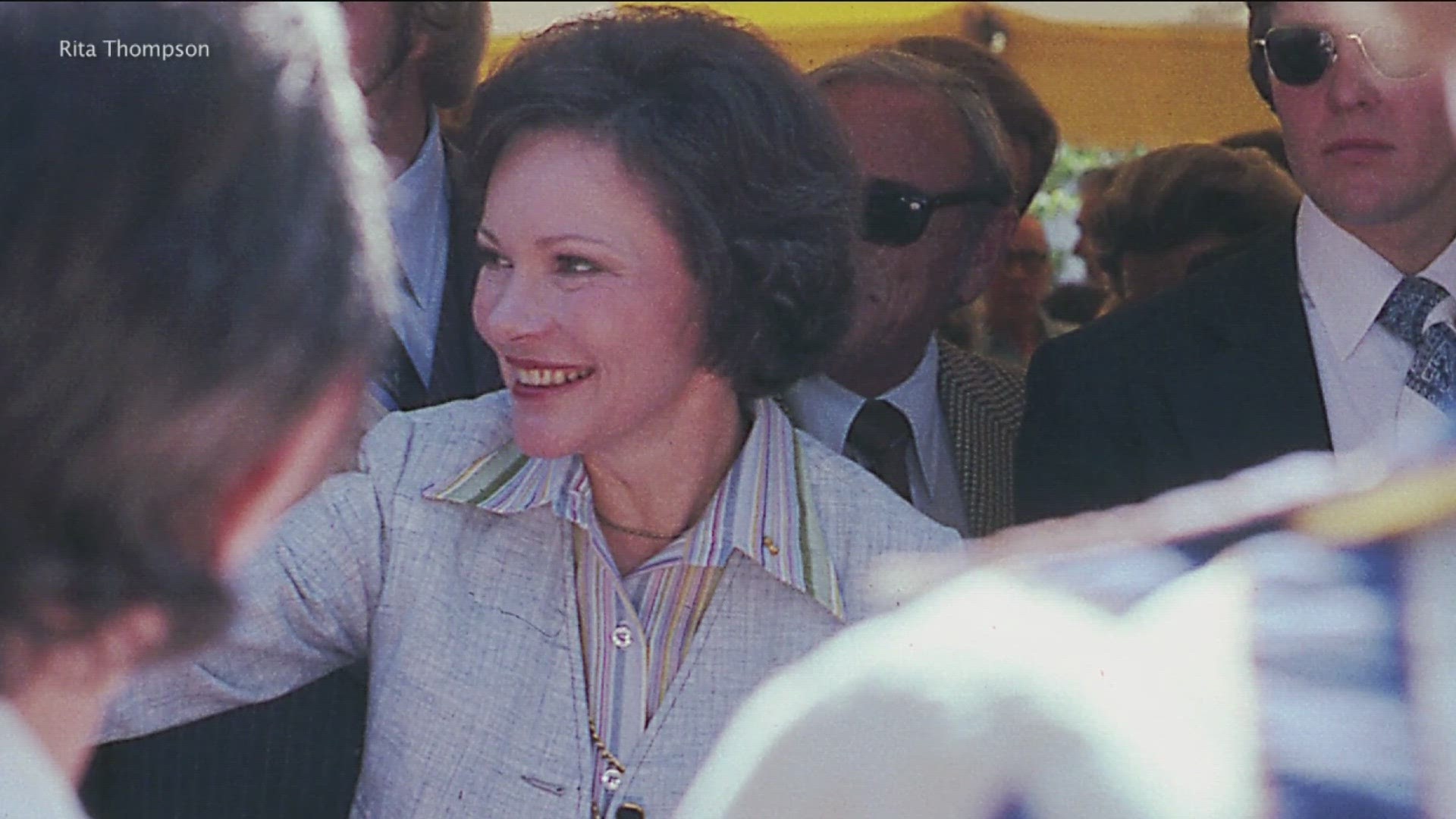AMERICUS, Ga. — Rosalynn Carter lived her years out of order, thrust into caregiving before she hit her teens.
At the age of 12, her father was diagnosed with cancer. She helped care for him and her younger siblings until his passing when she was 13.
RELATED: 'All the good ones are going' | Memories mount as Georgians prepare for Rosalynn Carter’s funeral
Within a year of her father’s death, Rosalynn’s grandmother unexpectedly passed and her grieving grandfather moved in so they could care for him, too.
“She watched her own mother serve as a caregiver, work outside the home and raise her and her siblings, so she saw that struggle,” Dr. Jennifer Olsen said, CEO of the Rosalynn Carter Institute for Caregivers.


Mrs. Carter's personal experience would mirror the stories she heard years later on the campaign trail.
“She realized she was often talking to a caregiver, the person next to her beside that patient, and so her interest and focus on caregivers came out of that,” Dr. Olsen said.
When she and President Carter left the White House, her alma mater Georgia Southwestern State University invited her to start a mental health program on campus. She didn’t want to duplicate the program she had at The Carter Center, so Mrs. Carter decided instead to focus on caregivers.
Mrs. Carter spoke publicly about that decision in 2003: “When we started the Rosalynn Carter Institute, we actually led the way in the whole country because nobody was working on caregiving.”
Dr. Olsen emphasized how much the conversation has changed around caregiver needs.
“Thirty-six years ago, caregiving wasn’t a topic but now you can’t turn to a new newspaper without seeing it,” she said.
President Carter even donated some of his Nobel Prize money to help further his wife’s mission.
In the same public appearance in 2003, Pres. Carter told reporters, “I thought what had helped me gain the prize? And it’s obvious the work at The Carter Center and my relationship with Rosalynn and the totality of our lives had been what had attracted the Nobel Committee, so there was no doubt in my mind ever that the Rosalynn Carter Institute would receive some of the funds.”
The couple shared they had no idea how much the prize money would be, but were pleasantly surprised by the amount which, in their words, allowed them to be more generous.
“It was more than we thought it would be, so the Rosalynn Carter Institute got a chunk. I’m proud of that,” Mrs. Carter laughed.


Since 1987, the Rosalynn Carter Institute has led the way in helping caregivers and their mental health. Dr. Olsen took over as CEO in 2018.
“Caregivers experience so many mental health challenges themselves. They’re isolated, they’re stressed, they’re dealing with increased burden from all the things they’re trying to handle,” Dr. Olsen said.
The Institute is now focused on making sure Mrs. Carter’s work endures even with the loss of its founder.
“I think our hearts are heavy, not just here in Plains but across the country and really across the world,” Dr. Olsen said.
When asked in 2003 what she believed her legacy would be, Rosalynn Carter laughed again and said, “I don’t know what my legacy will be. I had a lot of opportunities. I hope people will think I took advantage of them and did the best I could with them.”

